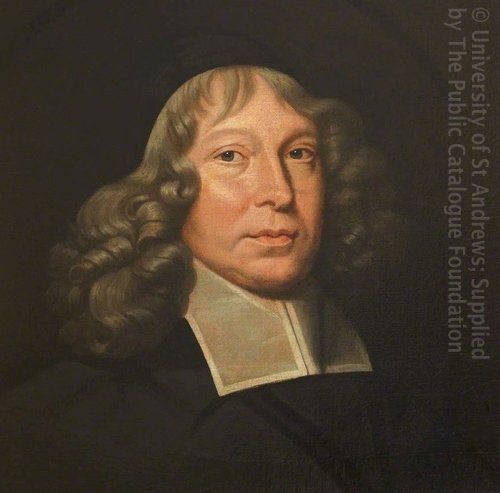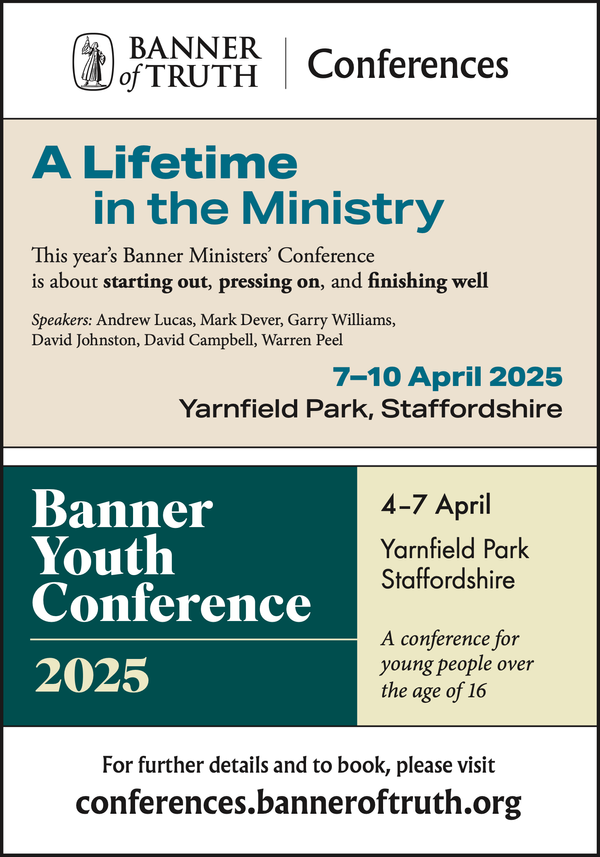In his epistle to the Romans the apostle Paul poses a rhetorical question. ‘Who shall separate us from the love of Christ? Shall tribulation, or distress, or persecution, or famine, or nakedness, or peril, or sword?’ (Romans 8:35).
Nothing and no one can loosen or sever the bond which unites each individual Christian man, woman, boy or girl with their Lord and Saviour. Believers have assurance of this in Jesus’ words: ‘My sheep hear my voice, and I know them, and they follow me: And I give unto them eternal life; and they shall never perish, neither shall any man pluck them out of my hand’ (John10:27-8).
This third and final instalment of my series on Sola Scriptura is written in the hope that Evangelical Christians today, no matter what degree of persecution and tribulation they may endure for his sake, might find inspiration and courage in the godly example of their late sixteenth and early seventeenth-century Scottish forefathers, who valiantly bore persecution and tribulation to God’s glory.

Persecution and tribulation
The Word of God exhorts us all to rejoice in hope, to be patient in tribulation and continue instant in prayer (Romans 12:12). Nevertheless, Paul warns us that ‘all that will live godly in Christ Jesus shall suffer persecution’ (2 Timothy 3:12).
To be sure, Christians living in the Western world today are more likely to be ridiculed and scorned than suffer outright persecution from their apathetic, sceptical and blissfully ignorant contemporaries. But, sadly, the same cannot be said for many of our brothers and sisters in Christ in other parts of the world, who are exposed to inhumane and degrading treatment on account of their faith in the Lord Jesus.
God’s holy Writ, however, also tells us to glory in tribulations, ‘knowing that tribulation worketh patience; and patience, experience; and experience, hope: And hope maketh not ashamed; because the love of God is shed abroad in our hearts by the Holy Ghost which is given unto us’ (Romans 5:3-5).
Conflict and triumph
The title for this third article was borrowed from the late William Henry Green’s short commentary on the Book of Job (recently published by Banner of Truth). Like Job, a significant number of godly men and women in Scotland, between 1584 and 1586 and more widely between 1596 and 1637, had to endure ignominy, suffering and persecution for righteousness’ sake.

Their ‘crime’ was their steadfast commitment to the achievements and ideals of their Reformation forebears, highlighted in the previous two articles. Andrew and James Melville, Robert Bruce, John Welsh, David Calderwood, John Livingston, David Dickson and Samuel Rutherford were among the Christ-centred ministers who suffered persecution and exile for the cause of the gospel during those years. Nevertheless, and perhaps as a direct result of their suffering, their works and writings continue to inspire and edify believers today.
John Livingston, a Presbyterian minister, noted in his diary that not since the days of the apostles had the Lord raised up such a powerful and efficacious preacher as Robert Bruce. Particular mention should also be made of Samuel Rutherford whose pastoral and doctrinal letters and other works continue to bear fruit to God’s glory in our own day.
Like Job, our Evangelical forebears triumphed in and over adversity. Moreover, many lived to witness for themselves the cause of the gospel wholly vindicated and victorious. This took place after the ‘Second Reformation’ re-established throughout Scotland the cause of biblical Christianity and Christ’s glorious Headship of his church.

A warning from the past
In the first of my two previous articles I sought to show how the Church in Scotland was re-formed on a thoroughly scriptural template at the time of the Reformation. Jesus Christ was both Saviour and Lord of his flock, the one and only Head of his body, which is the church. The Holy Bible, and it alone, was made sole judge in all matters relating to faith and practice. This was the crowning accomplishment of the wondrous renewal of true religion that occurred during the late sixteenth and early seventeenth centuries.
However, in the second instalment I explained how ecclesiastical expediency, compromise with the secular authorities, and submission to the prevailing political and social culture of that day, conspired to jeopardise and undermine what the Reformation had accomplished.
The words of the godly Presbyterian minister, George Gillespie, echoing the prophet Hosea, are worth quoting at length. Gillespie bemoaned the backsliding and retrogressive measures that seriously threatened to undo the achievements of the Reformation in his native land. He inquired sorrowfully:
‘What doleful and disastrous mutation (to be bewailed with tears of blood) has happened to the church and spouse of Christ in these dominions? Her comely countenance is miscoloured with the fading luster of the mother of harlots; her shamefaced forehead has received the mark of the beast; her lovely locks are frizzled with the crisping pins of anti-Christian fashions; her chaste ears are made to listen to the friends of the great whore, who bring the bewitching doctrine of enchanting traditions; her dove-eyes look pleasantly upon the well-attired harlot; her sweet voice is murmuring and muttering some missal and magical liturgies; her fair neck bears the halter-like tokens of her former captivity, even a burdensome chain of superfluous and superstitious ceremonies; her undefiled garments are stained with the meretricious bravery of Babylonish ornaments, and with the symbolising badges of conformity with Rome; her harmless hands reach brick and mortar to the building of Babel; her beautiful feet with shoes are all besmeared, whilst they return apace in the way of Egypt, and wade the ingruent brooks of Popery’.
Steadfast and triumphant
Gillespie was one of a significant number of Christians in Scotland who did not succumb to the allurements, entrapments and threats of the ecclesiastical and secular authorities. Indeed, he both witnessed and played a part in the events that led to the nation re-pledging herself to biblical Christianity, which she did in the National Covenant in 1638.
In this covenant, after some forty years of compromise and retrogressive change, the Church in Scotland promised ‘to labour, by all means lawful, to recover the purity and liberty of the gospel, as it was established and professed before the foresaid novations’.
Moreover, Gillespie was part of the influential Scottish delegation that played a crucial part in compiling the Westminster Confession of Faith and related compositions in London during the mid-1640s.
Take heart
In his sovereign grace and mercy, God raised up, equipped and empowered men and women to keep aflame the light of the gospel. Like the godly remnant of the children of Israel in Old Testament times, these men and women triumphed through years of persecution, ridicule and darkness because they rooted their faith firmly in the Lord and in his infinitely gracious promises contained in Scripture.
Surely, we must learn and take heart from their glorious example. I often encounter Evangelical Christians today full of despair and pessimism about the future of our country and the Western World on account of their abandonment of biblical Christianity.
We can empathise with the trepidation and grief of our fellow believers, as millions of souls perish on account of unbelief. But we must nevertheless rejoice in hope, be patient in tribulation and continue instant in prayer, knowing that our sovereign God works all things after the counsel of his own will (Ephesians 1:11).
Sola Scriptura
Is the situation facing the church militant today so different from that which confronted Paul and his fellow preachers and teachers in the first century? Is it really different to that which confronted our Reformation forebears and their evangelical successors?
They triumphed in and over adversity by the power of God’s grace, and did so to his praise and glory. They triumphed through conflict because they rooted their faith and trust in the Lord of lords and King of kings, remaining true to Sola Scriptura, Scripture alone. This was the message proclaimed by Paul to the Bereans and to all others who heard him preach ‘the unsearchable riches of Christ’ (Ephesians 3:8).
Sola Scriptura was the rallying call of the sixteenth-century Reformation, an event that precipitated a wondrous revival of true religion throughout the length and breadth of Europe. Sola Scriptura must still be our rallying call today. May our infinitely loving and merciful God see fit to bless our endeavours, to his eternal glory.





